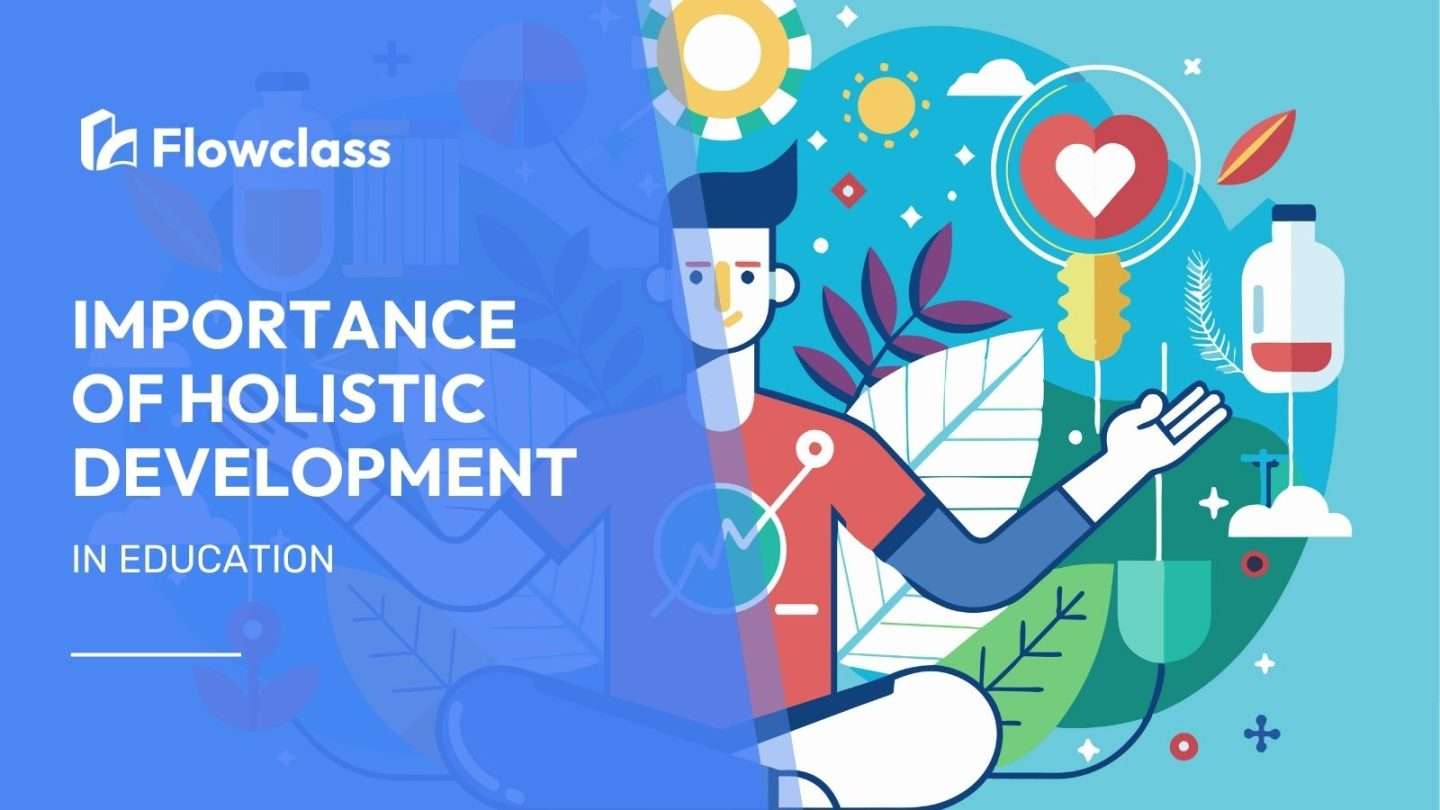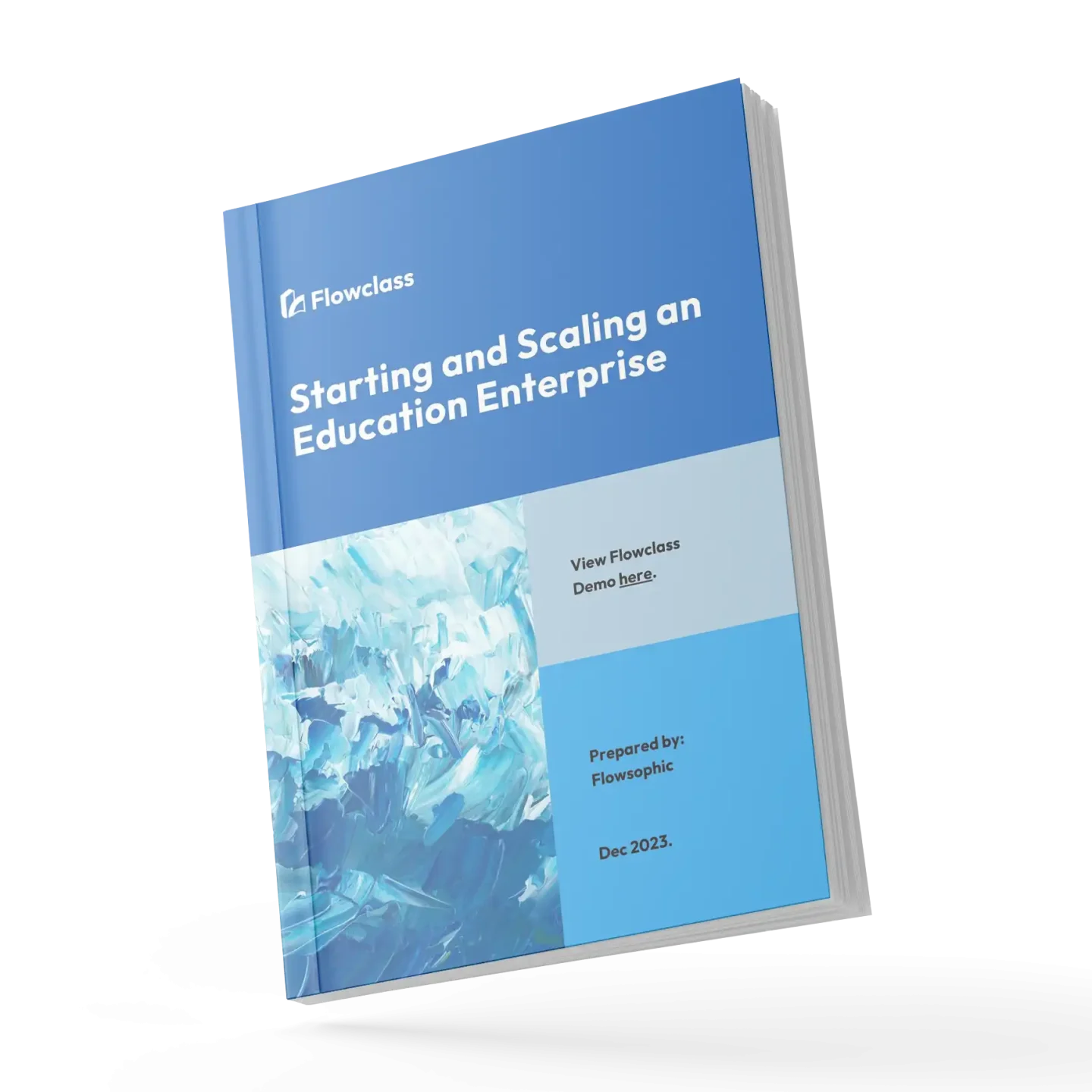Education has evolved beyond the traditional focus on academic learning. In today’s fast-paced and ever-changing world, holistic development has become a key aspect of education for lifelong learners. Holistic development encompasses the mental, emotional, physical, and social well-being of individuals, ensuring they grow into well-rounded individuals.
For lifelong learners, holistic development allows them to acquire not just knowledge, but also the critical skills needed to adapt and thrive in various life situations. This includes problem-solving abilities, effective communication skills, emotional intelligence, and a growth mindset. By nurturing these skills alongside academic learning, education provides a solid foundation for personal and professional growth throughout life.
Furthermore, holistic development encourages individuals to explore their passions and interests, fostering a love for learning that extends beyond the traditional classroom. It emphasizes the value of real-world experiences, promoting creativity, and empowering students to become active participants in their own education.
In conclusion, holistic development in education is essential for lifelong learners as it equips them with the necessary skills, knowledge, and mindset to navigate the complexities of the modern world. It empowers individuals to become well-rounded, adaptable, and curious individuals, ready to embrace lifelong learning.
Understanding Holistic Development in Education

Holistic development in education refers to an approach that focuses on nurturing the overall well-being and growth of an individual, rather than solely emphasizing academic achievements. This approach recognizes that learners are multifaceted beings, with cognitive, social, emotional, physical, and spiritual dimensions that all contribute to their development and learning.
At the core of holistic development is the understanding that education is not just about imparting knowledge but also about cultivating essential life skills, fostering personal growth, and empowering individuals to become well-rounded and adaptable. This approach acknowledges that true learning goes beyond the confines of the classroom and involves the integration of various aspects of an individual’s life.
By embracing a holistic perspective, educational institutions can create an environment that supports the development of the whole person, enabling learners to thrive academically, socially, and emotionally.
This comprehensive approach ensures that learners not only acquire academic knowledge but also develop the critical thinking, problem-solving, communication, and interpersonal skills necessary for success in both personal and professional realms.
The Need for Broad-Based Development in Education
In the rapidly changing world of the 21st century, the traditional focus on academic achievement alone is no longer sufficient to prepare learners for the challenges they will face. The pace of technological advancement, the increasing complexity of social issues, and the evolving demands of the job market require a more comprehensive approach to education.
Holistic development in education addresses this need by recognizing that learners require a diverse set of skills and competencies to navigate the complexities of modern life. Beyond the mastery of academic subjects, learners need to develop emotional intelligence, resilience, creativity, and the ability to collaborate effectively with others. These skills are essential for personal and professional success, as well as for contributing positively to the communities in which they live.
Furthermore, the increasing emphasis on lifelong learning underscores the importance of holistic development. In a world where knowledge and skills become obsolete at a faster pace, individuals must be equipped with the adaptability and self-directed learning abilities to continually acquire new knowledge and skills throughout their lives.
Holistic development nurtures these essential qualities, empowering learners to become lifelong learners who are capable of navigating the ever-evolving landscape of the modern world.
Key Components of Holistic Development
Holistic development in education encompasses a range of interconnected components that work together to foster the growth and well-being of the whole individual. These key components include:
- Cognitive Development: This aspect focuses on the development of critical thinking, problem-solving, and decision-making skills, enabling learners to engage with academic content in meaningful and practical ways.
- Emotional Intelligence: Holistic development emphasizes the importance of emotional awareness, self-regulation, and empathy, which are essential for building strong interpersonal relationships and navigating the emotional complexities of life.
- Physical Well-being: This component addresses the physical health and fitness of learners, promoting the integration of physical activity, nutrition, and healthy lifestyle habits as integral parts of the educational experience.
- Social and Interpersonal Skills: Holistic development fosters the development of communication, collaboration, and conflict resolution skills, enabling learners to engage effectively with diverse communities and contribute positively to society.
- Spiritual and Ethical Development: This aspect encourages the exploration of personal values, purpose, and meaning, helping learners develop a sense of self-awareness, ethical decision-making, and a deeper understanding of their place in the world.
- Creative Expression: Holistic development values the cultivation of creativity, imagination, and artistic expression, allowing learners to explore and develop their unique talents and passions.
By addressing these interconnected components, holistic development in education creates a comprehensive and balanced approach to learning, empowering learners to grow into well-rounded individuals who are equipped to thrive in various aspects of their lives.
The Benefits of Broad-Based Development for Lifelong Learners

Embracing a holistic approach to education offers a multitude of benefits for lifelong learners, both in the short and long term. Some of the key advantages include:
- Enhanced Academic Performance: Holistic development supports academic achievement by fostering a love of learning, improving focus and concentration, and equipping learners with the critical thinking and problem-solving skills necessary for success in their studies.
- Improved Social and Emotional Well-being: By nurturing emotional intelligence, self-awareness, and interpersonal skills, holistic development helps learners build stronger relationships, manage stress more effectively, and develop a greater sense of empathy and compassion.
- Increased Adaptability and Resilience: Holistic development prepares learners to navigate the complexities of life by cultivating a growth mindset, problem-solving abilities, and the capacity to adapt to changing circumstances, equipping them with the skills needed to thrive in an ever-evolving world.
- Expanded Opportunities for Personal and Professional Growth: Holistic development encourages learners to explore their passions, develop their unique talents, and engage in meaningful extracurricular activities, opening up a wide range of personal and professional opportunities.
- Enhanced Sense of Purpose and Meaning: By addressing the spiritual and ethical dimensions of development, holistic education helps learners find purpose, meaning, and a deeper understanding of their role in the world, fostering a greater sense of fulfillment and well-being.
- Lifelong Commitment to Learning: Holistic development nurtures a love of learning and a curiosity about the world, instilling in learners a desire to continue exploring, growing, and acquiring new knowledge and skills throughout their lives.
Strategies for Promoting Holistic Development in Education
Fostering holistic development in educational settings requires a multifaceted approach that integrates various strategies and practices. Some key strategies include:
- Curriculum Integration: Incorporating holistic development principles into the curriculum, ensuring that academic subjects are taught in a way that also fosters the development of critical thinking, emotional intelligence, and other essential life skills.
- Experiential Learning: Providing learners with opportunities to engage in real-world, hands-on experiences that allow them to apply their knowledge and develop practical skills, such as internships, service-learning projects, and community-based initiatives.
- Mindfulness and Wellness Practices: Integrating mindfulness, meditation, and other wellness practices into the educational environment to help learners develop self-awareness, emotional regulation, and stress management skills.
- Interdisciplinary Collaboration: Encouraging collaboration among educators from different disciplines to create cross-curricular learning experiences that bridge the gaps between academic subjects and real-world applications.
- Personalized Learning Pathways: Offering flexible, learner-centered approaches that allow individuals to explore their interests, pursue their passions, and develop their unique talents and strengths.
- Inclusive and Supportive Learning Environments: Fostering a culture of inclusivity, respect, and support that empowers learners to take risks, embrace challenges, and feel safe to express themselves authentically.
The Role of Educators in Fostering Broad-Based Development

Educators play a pivotal role in the successful implementation of holistic development in education. As the primary facilitators of the learning process, educators must adopt a holistic mindset and develop the necessary skills and knowledge to support the comprehensive growth of their students.
One of the key responsibilities of educators in this context is to shift their focus from simply imparting knowledge to nurturing the overall well-being and development of their learners. This requires a deep understanding of the various components of holistic development, as well as the ability to design and implement learning experiences that address these interconnected aspects.
Educators must also be skilled in creating inclusive and supportive learning environments that encourage learners to take risks, explore their interests, and engage in self-reflection. By modeling emotional intelligence, empathy, and a growth mindset, educators can inspire their students to develop these essential qualities and apply them in their personal and academic lives.
Furthermore, educators must be willing to collaborate with other professionals, such as counselors, social workers, and health professionals, to ensure that the holistic needs of their learners are being addressed. This collaborative approach allows for a more comprehensive and integrated support system that caters to the diverse needs of each individual learner.
Ultimately, the success of holistic development in education relies heavily on the commitment, expertise, and adaptability of educators. By embracing this approach and continuously refining their practices, educators can play a crucial role in empowering lifelong learners to reach their full potential and thrive in the modern world.
Integrating Broad-Based Development into the Curriculum
Integrating holistic development into the curriculum is a crucial step in ensuring that educational institutions truly prioritize the comprehensive growth and well-being of their learners. This process involves a systematic and intentional approach to curriculum design and implementation, with the goal of seamlessly weaving holistic development principles into the academic framework.
One effective strategy is to adopt a cross-curricular approach, where educators from different subject areas collaborate to create learning experiences that address multiple aspects of holistic development. For example, a lesson on environmental science could incorporate elements of systems thinking, problem-solving, and ethical decision-making, while also encouraging physical activity and outdoor exploration.
Another important aspect of integrating holistic development is the incorporation of experiential learning opportunities. By providing learners with hands-on, real-world experiences, educational institutions can foster the development of essential skills such as critical thinking, communication, and collaboration.
These experiences might include community service projects, internships, or entrepreneurial ventures, all of which allow learners to apply their knowledge and skills in meaningful contexts.
Additionally, the curriculum should include dedicated time and resources for the cultivation of social-emotional learning, mindfulness, and wellness practices. This could involve the integration of dedicated courses or the incorporation of these elements across various subject areas.
By prioritizing the development of self-awareness, emotional regulation, and stress management skills, educational institutions can empower learners to navigate the challenges of modern life with greater resilience and well-being.
Ultimately, the successful integration of holistic development into the curriculum requires a holistic approach to curriculum design and implementation. This involves ongoing collaboration among educators, administrators, and other stakeholders to ensure that the educational experience truly reflects the needs and aspirations of lifelong learners.
Challenges and Potential Solutions in Implementing Holistic Development
While the benefits of holistic development in education are well-documented, the implementation of this approach can present a range of challenges that must be addressed. Some of the key challenges include:
- Resistance to Change: Shifting from a traditional, academic-focused approach to a more holistic model can be met with resistance from some educators, parents, and even policymakers who are accustomed to the status quo.
- Resource Constraints: Implementing holistic development often requires additional resources, such as professional development for educators, specialized equipment, and dedicated spaces for wellness and extracurricular activities.
- Standardized Testing Pressures: The emphasis on high stakes testing in many educational systems can create pressure to prioritize academic performance over the more comprehensive aspects of holistic development.
- Lack of Educator Preparedness: Many educators may lack the necessary training and expertise to effectively integrate holistic development principles into their teaching practices.
- Difficulty in Measuring and Assessing Holistic Outcomes: Quantifying the impact of holistic development on learners’ long-term well-being and success can be challenging, as these outcomes are often more qualitative in nature.
To address these challenges, educational institutions can implement the following potential solutions:
- Comprehensive Professional Development: Providing ongoing training and support for educators to enhance their understanding and implementation of holistic development principles.
- Collaborative Partnerships: Fostering partnerships with community organizations, mental health professionals, and other relevant stakeholders to expand the resources and expertise available to support holistic development.
- Advocacy and Policy Changes: Advocating for policy changes that recognize and support the importance of holistic development, potentially through the revision of assessment frameworks and educational standards.
- Innovative Assessment Approaches: Developing alternative assessment methods that capture the multifaceted outcomes of holistic development, such as portfolios, project-based evaluations, and self-reflection exercises.
- Gradual Implementation and Pilot Programs: Adopting a phased approach to implementation, starting with pilot programs and gradually expanding the holistic development initiatives across the institution.
- Cultivating a Shared Vision: Fostering a collaborative, whole-school approach to holistic development, where all stakeholders, including educators, administrators, and families, are aligned in their understanding and commitment to this approach.
By addressing these challenges and implementing strategic solutions, educational institutions can overcome the barriers to holistic development and create transformative learning environments that empower lifelong learners to thrive.
Success Stories: Examples of Schools Prioritizing Holistic Development
As the importance of holistic development in education becomes increasingly recognized, there are numerous inspiring examples of schools and educational institutions that have successfully implemented this approach. These success stories serve as valuable case studies, offering insights and best practices that can be adapted and replicated by other educational institutions.
One notable example is the High-Tech High network of charter schools in California, which has gained international recognition for its innovative, project-based learning model that emphasizes holistic development. At High Tech High, students engage in hands-on, interdisciplinary projects that integrate academic content with real-world problem-solving, creative expression, and social-emotional learning. This approach has resulted in high levels of student engagement, academic achievement, and the development of essential 21st-century skills.
Another success story is the Waldorf School movement, which has a long-standing tradition of prioritizing holistic development in its educational approach. Waldorf schools focus on nurturing the cognitive, emotional, physical, and spiritual dimensions of the child, with a strong emphasis on artistic expression, outdoor education, and the integration of academic subjects with practical life skills. The Waldorf approach has been shown to foster well-rounded individuals who are intrinsically motivated, creative, and socially responsible.
In the international context, the International Baccalaureate (IB) program has also been recognized for its holistic approach to education. The IB curriculum encourages learners to explore their interests, engage in community service, and develop a global perspective, in addition to mastering academic content. This holistic approach has been associated with higher levels of academic achievement, as well as the development of essential life skills and a strong sense of social responsibility.
These success stories demonstrate that when educational institutions prioritize holistic development, they can create transformative learning environments that empower learners to thrive academically, socially, and personally.
By studying these examples and adapting their best practices, other schools and educational systems can work towards implementing their own holistic development initiatives, ultimately shaping a new generation of lifelong learners who are well-equipped to navigate the complexities of the modern world.
Conclusion: The Long-Term Impact of Holistic Development in Education
As we have explored throughout this article, the importance of holistic development in education for lifelong learners cannot be overstated. By embracing a comprehensive approach that nurtures the cognitive, emotional, physical, social, and spiritual dimensions of the individual, educational institutions can empower learners to become well-rounded, adaptable, and resilient individuals who are prepared to navigate the challenges and opportunities of the 21st century.
The long-term impact of holistic development in education is far-reaching, as it has the potential to transform not only the lives of individual learners but also the communities and societies in which they live. By equipping learners with a diverse set of skills, knowledge, and mindsets, holistic development fosters the development of critical thinkers, effective communicators, compassionate leaders, and engaged citizens who are committed to making a positive difference in the world.
Moreover, the benefits of holistic development extend beyond the academic realm, as it supports the overall well-being and life satisfaction of learners. By nurturing emotional intelligence, self-awareness, and a growth mindset, holistic development empowers individuals to navigate the ups and downs of life with greater resilience, adaptability, and a sense of purpose. This, in turn, can lead to improved mental health, stronger interpersonal relationships, and a greater sense of fulfillment and meaning in one’s personal and professional pursuits.
As we look to the future, the need for holistic development in education will only continue to grow. In a rapidly changing world characterized by complex challenges and unprecedented opportunities, the ability to think critically, adapt quickly, and collaborate effectively will be essential for individual and societal success. By prioritizing holistic development, educational institutions can play a pivotal role in shaping a new generation of lifelong learners who are poised to thrive and make a lasting impact on the world around them.
In conclusion, the integration of holistic development in education is not just a trend or a passing fad, but rather a fundamental shift in the way we approach the learning and growth of individuals. By embracing this comprehensive approach, we can empower lifelong learners to reach their full potential, cultivate a deep love for learning, and become the agents of positive change that the world so urgently needs.
📣 Want to read more interesting education content? Check out our blogs for more!


